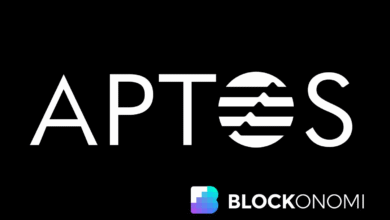Commodity Trading Advisors: Risks for Crypto KOLs Revealed

Commodity Trading Advisors (CTAs) play a pivotal role in the financial landscape, advising clients on futures and options trading across various asset classes, including the burgeoning realm of cryptocurrency. As the Commodity Futures Trading Commission (CFTC) exercises greater oversight under the Commodity Exchange Act, understanding the regulations surrounding CTAs has never been more crucial. For digital asset advisors and influential figures, especially Key Opinion Leaders (KOLs), the fine line between providing general market commentary and trading advice compliance can expose them to significant repercussions. As market participants rapidly engage with crypto assets, the importance of adhering to CFTC regulations is paramount to avoid the pitfalls of trading violations. By harnessing their expertise responsibly, CTAs, crypto KOLs, and digital asset advisors can navigate the complexities of these evolving markets while safeguarding their interests and those of their clients.
In the world of finance, advisors who specialize in trading commodities are essential for guiding investors through the complexities of diverse markets, particularly as digital currencies emerge. Often referred to as trading consultants, these professionals operate under stringent regulations, compliance requirements, and ethical standards designed to protect market integrity. Key Opinion Leaders (KOLs) in the crypto space, acting as influential educators or market commentators, may inadvertently fall under the strict definitions established by the CFTC if their content provides trading recommendations for profit. Understanding the intersections between trading advice, regulatory frameworks like the Commodity Exchange Act, and the responsibilities of digital asset advisors is crucial for anyone wishing to thrive in this dynamic environment. As the marketplace evolves, so too does the need for these advisors to remain vigilant and compliant, ensuring their advice aligns with the legalities governing their industry.
Understanding the Role of Commodity Trading Advisors
Commodity Trading Advisors (CTAs) play a crucial role in the trading landscape, especially as digital assets evolve in popularity. Defined under the Commodity Exchange Act, a CTA can be an individual or entity that provides trading advice about commodity interests, which now extends to include digital assets like cryptocurrencies. This expanded definition is not just abstract; it is vital for those engaging in trading activities to comprehend their responsibilities, which may include regulatory compliance, proper disclosures, and adherence to anti-fraud provisions established by the CFTC.
As the line between conventional trading and digital trading blurs, it is imperative for potential CTAs to grasp what constitutes trading advice. For instance, advising on Bitcoin futures or Ethereum swaps qualifies as commodity trading advice, potentially necessitating registration and compliance with CFTC guidelines. The complexities involved in being a CTA require an understanding not only of market dynamics but also of overarching regulations that govern trading behaviors.
CFTC Regulations: What You Need to Know
The CFTC’s regulations are designed to protect market integrity, and they apply stringsently to those identified as Commodity Trading Advisors. This regulatory framework mandates CTAs to register, maintain accurate records, provide disclosures to clients, and comply with advertising standards. Each requirement serves as a safeguard against manipulative practices and reinforces transparent trading environments. For KOLs and influencers in the crypto space, understanding these regulations is pivotal to avoid potential legal pitfalls.
Failure to comply with CFTC regulations can lead to severe consequences, ranging from civil penalties to trading bans. Recent cases illustrated by the CFTC educate the market on these risks and underscore the importance of compliance. Moreover, because the digital asset market operates across international borders, adhering to U.S. regulations is paramount, as even a global audience can invoke U.S. jurisdiction if the content is accessible by American citizens.
The Intersection of KOLs and CTA Regulations
The rise of Key Opinion Leaders (KOLs) in the digital asset space has introduced nuanced challenges regarding CTA regulations. KOLs who disseminate investment advice for compensation might inadvertently become subject to CTA registration. This includes influencers who monetize their platforms through sponsorships or premium content that provides trading insights. Understanding when these activities transition from simple commentary to regulated advice is paramount for avoiding compliance issues.
For KOLs, generating revenue from content that implies specific trading strategies can easily cross into CTA territory. Offering paid newsletters with detailed crypto market analyses, subscription-based services providing trading signals, or instructional videos on executing trades may all trigger the need for CFTC registration. Therefore, KOLs must exercise caution when discussing trading strategies and consider whether their compensation model aligns with CTA requirements under regulatory scrutiny.
Navigating Exemptions Under CFTC Guidelines
While many KOLs may inadvertently fall into the realm of CTAs, there are essential exemptions outlined under the CFTC guidelines that might protect them from registration. For instance, the ‘de minimis’ exemption allows individuals advising fewer than 15 clients within a year to operate without the burdens of registration, provided that their advisory activities are not their primary business concern. This exemption can be a lifeline for budding influencers who are cautious yet eager to engage with their audiences.
However, securing an exemption requires meticulous adherence to the specific criteria established by the CFTC. A KOL claiming this exemption must ensure their advice remains impersonal and not tailored to individual circumstances. Moreover, exemptions for educators or publishers are also strictly defined, prohibiting any content that could be interpreted as personalized trading advice to comply with regulatory standards. Therefore, KOLs should seek comprehensive legal guidance to assess their position diligently.
Implications of Non-Compliance for KOLs
The implications of non-compliance with CTA regulations for KOLs can be severe, potentially leading to financial penalties, loss of credibility, and a forced cessation of trading-related activities. With the CFTC increasing its scrutiny of KOLs who may unwittingly operate as CTAs, the risks associated with ignoring registration requirements or misinterpreting one’s activities as exempt cannot be overstated. Maintaining compliance is not only a regulatory necessity but also a strategic imperative to protect one’s brand.
Additionally, KOLs must understand that despite the inherent challenges of registration, the benefits of compliance—such as enhanced trust from their audience and greater legitimacy in the market—can outweigh the burdens. A compliant image fosters confidence among followers, further solidifying a KOL’s position as a reputable source of trading knowledge, especially in a market rife with misinformation and unregulated advice.
Strategies for Developing a Compliant KOL Model
For KOLs looking to build a compliant business model within the evolving regulatory landscape, several strategies can help navigate CTA obligations effectively. First, understanding the nuanced definitions of commodity interests and trading advice is critical. This knowledge empowers KOLs to create content that demarcates between general commentary and actionable trading advice, thus safeguarding against the CFTC’s enforcement actions.
Second, establishing clear boundaries on compensation structures can provide peace of mind. KOLs can focus on selling non-specific insights or market trends rather than personalized trading advice. By doing so, they reduce their risk of being classified as a CTA and ensure they operate within the confines of permissible activities outlined by the CFTC. These strategies not only mitigate compliance risks but also set the stage for sustained audience trust and engagement.
The Future of KOLs in the Cryptocurrency Landscape
As digital asset markets continue to mature, the roles of KOLs as potential CTAs will invariably intensify. They increasingly find themselves at the intersection of innovation and regulation, where their influence can significantly shape market trajectories. With the CFTC poised to enhance its regulatory oversight, KOLs must adapt proactively to these changes to maintain relevance and integrity in an increasingly regulated environment.
Looking ahead, KOLs who embrace compliance and transparency will likely establish themselves as leaders amidst a sea of unregulated voices. By aligning their activities with CFTC requirements, they not only avoid legal repercussions but also earn the respect and trust of their followers, creating a sustainable influence in crypto trading. The future landscape will favor those who prioritize compliance as an essential element of their business strategy.
Legal Guidance: A Necessity for KOLs
Given the complex and evolving nature of regulations governing CTAs, seeking knowledgeable legal counsel is indispensable for KOLs operating in the cryptocurrency space. Legal experts can provide insights into registration requirements, potential exemptions, and best practices to align content creation with regulatory standards. Engaging with legal professionals ensures that KOLs accurately assess their responsibilities and navigate the intricacies of compliance effectively.
Furthermore, a proactive legal strategy can facilitate the development of structured compliance programs that withstand regulatory scrutiny. KOLs equipped with comprehensive compliance frameworks can confidently advise their followers while mitigating exposure to legal risks. This proactive approach not only safeguards against unforeseen penalties but also enhances a KOL’s reputation as a credible and trustworthy figure in the dynamic world of digital asset trading.
Frequently Asked Questions
What constitutes a Commodity Trading Advisor (CTA) under the Commodity Exchange Act (CEA)?
A Commodity Trading Advisor (CTA) is defined by the Commodity Exchange Act (CEA) as an individual or entity that, for compensation, provides advice regarding the value of or the advisability of trading in commodity interests. This includes a wide range of products such as futures contracts, options, swaps, and increasingly, cryptocurrency derivatives like Bitcoin or Ether futures.
Do Key Opinion Leaders (KOLs) in the crypto space need to register as Commodity Trading Advisors?
Yes, Key Opinion Leaders (KOLs) can potentially be classified as Commodity Trading Advisors (CTAs) if their activities involve giving trading advice for compensation. This means that if KOLs provide investment insights or recommendations about trading crypto derivatives, they must consider CFTC registration requirements unless they qualify for an exemption.
What are the registration requirements for Commodity Trading Advisors (CTAs)?
Commodity Trading Advisors (CTAs) are required to register with the CFTC via the National Futures Association (NFA), complete specific forms, pass the Series 3 National Commodity Futures Examination, provide clients with necessary disclosures, and maintain proper records. Unregistered CTAs relying on exemptions must still adhere to CFTC anti-fraud provisions.
How can KOLs avoid registering as Commodity Trading Advisors (CTAs)?
KOLs may avoid registration as Commodity Trading Advisors (CTAs) by qualifying for exemptions such as the ‘de minimis’ exemption, which applies to advisors who advise fewer than 15 people over a year and do not hold themselves out as CTAs. Certain educational content may also fall under exemptions if it remains general and doesn’t provide specific trading recommendations.
What activities could classify KOLs as Commodity Trading Advisors (CTAs)?
Activities that could classify KOLs as Commodity Trading Advisors (CTAs) include publishing paid newsletters with specific trading advice, hosting subscription-based channels offering trading signals, and creating sponsored content that gives targeted trading recommendations. Receiving compensation for such activities can trigger CTA designation.
What risks do KOLs face if they do not comply with Commodity Trading Advisor regulations?
KOLs who fail to comply with Commodity Trading Advisor regulations may face serious legal repercussions including civil monetary penalties, trading bans, and even disgorgement of profits. The CFTC actively enforces regulations surrounding unregistered CTA activities, especially in the rapidly evolving crypto markets.
How can influencers ensure compliance when acting as Commodity Trading Advisors (CTAs)?
Influencers can ensure compliance as Commodity Trading Advisors (CTAs) by carefully analyzing their content and compensation structures, seeking legal advice to determine registration requirements, and building compliant business models. Understanding the boundaries of providing general educational content versus specific trading advice is crucial.
What are the implications of the Commodity Exchange Act (CEA) for digital asset trading?
The Commodity Exchange Act (CEA) significantly impacts digital asset trading by encompassing digital assets under its regulatory framework, categorizing advisors of such assets as Commodity Trading Advisors (CTAs) if they provide trading advice for compensation. This expansion means increased scrutiny and registration requirements for digital asset advisors by the CFTC.
| Key Point | Description |
|---|---|
| Definition of CTA | A Commodity Trading Advisor (CTA) advises others on trading in commodity interests for compensation, including cryptocurrencies. |
| Registration Requirements | CTAs must register with CFTC/NFA, file appropriate forms, provide disclosures, and keep records unless exempt. |
| KOLs and CTA Definition | Key Opinion Leaders (KOLs) may fall under CTA definitions if they give trading advice for compensation. |
| Examples of CTA Activities | Paid newsletters, subscription services for trading signals, YouTube trading advice. |
| Exemptions | Certain KOLs can qualify for exemptions if they advise fewer than 15 persons or their content is impersonal. |
| Risk of Enforcement | The CFTC is vigilant against unregistered CTAs in crypto markets, with penalties for non-compliance. |
Summary
Commodity Trading Advisors must navigate complex regulatory landscapes, especially as the rise of digital assets blurs traditional definitions. In particular, Key Opinion Leaders (KOLs) operating in the cryptocurrency market need to be aware of their potential designation as CTAs under the Commodity Exchange Act. This designation carries significant registration and compliance responsibilities that could impact their operations significantly. It is critical for KOLs to seek legal guidance to ensure they do not inadvertently violate these regulations, as enforcement actions by the CFTC can result in severe penalties. Understanding the nuances of compliance and the definitions of advice and compensation is vital in safeguarding their activities in the rapidly evolving crypto environment.




